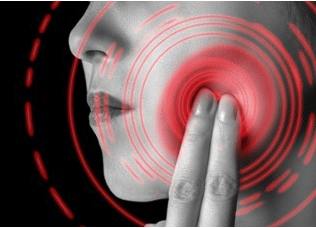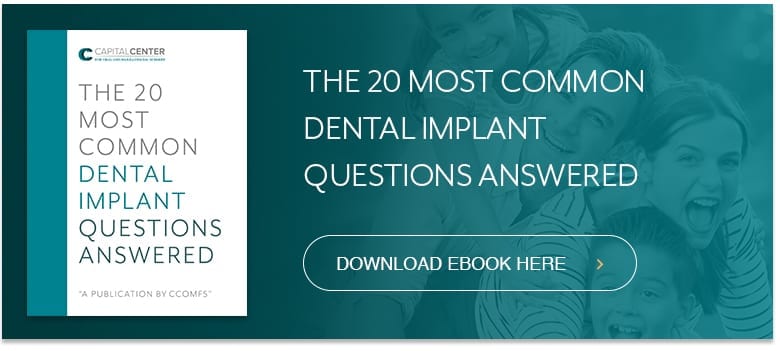 If you have had implant-based dental restoration and are experiencing some discomfort, there are a number of issues that may be at the root of the problem. These range from serious problems that need to be addressed by your oral surgeon or restorative dentist, to more transient discomforts that may simply be related to healing or adjusting to your new teeth. Of course, anyone with an implant that feels weird or is painful should be examined by a dental professional, but for those looking for information in the meantime, we’ll outline some of the most common causes of implant discomfort.
If you have had implant-based dental restoration and are experiencing some discomfort, there are a number of issues that may be at the root of the problem. These range from serious problems that need to be addressed by your oral surgeon or restorative dentist, to more transient discomforts that may simply be related to healing or adjusting to your new teeth. Of course, anyone with an implant that feels weird or is painful should be examined by a dental professional, but for those looking for information in the meantime, we’ll outline some of the most common causes of implant discomfort.
Early Implant Discomfort (Soon After Placement)
Dental implant placement is a surgical procedure, so patients will experience some pain and discomfort afterwards. However, these issues should be largely resolved within 10 to 14 days. If your pain or discomfort lasts longer or gets worse over time, this can be caused by problems that include:
- Infection – If your discomfort or pain is accompanied by gum inflammation, bleeding or an unpleasant taste in your mouth, you may have an infection brewing around your implant.
- A loose healing cap – These caps can cause feelings of pressure or pain if they aren’t properly secured.
- Pressure from a temporary tooth – Temporary prosthetics, used for cosmetic purposes during healing, can irritate surgical sites, causing discomfort.
- Nerve damage – Pain, numbness or tingling in the gums, lips, chin or face can be signs of nerve damage during surgery or an implant that has been placed too close to a nerve.
- Sinus issues – Feelings of discomfort or pressure after implants are placed in the upper jaw can be caused by an implant that protrudes into the sinus cavity or is placed too close to it.
- Poor osseointegration – This is when the implant fails to bond with the jawbone as expected, remaining loose and causing discomfort or pain as it moves about.
Late Implant Discomfort (Months Or Years After Placement)
If your dental implant feels weird: a bit uncomfortable or painful after healing and osseointegration is complete and your replacement teeth are in place, there are a number of potential causes for that change, including:
- Poorly fit prosthetics – If your discomfort appeared when your new teeth were fitted or soon after, they may be the source of it. Crowns, bridges or permanent dentures that aren’t made or fit properly can cause feelings of pressure or pain.
- Worn, damaged or loose prosthetics – If you’ve had your implant-based restoration for a while, your prosthetic teeth may need some attention, since wear or damage can change your bite over time, causing discomfort, or attachments, such as cement or screws can loosen.
- Peri-implantitis – An infection similar to gum disease in natural teeth, peri-implantitis can cause inflammation and/or bleeding of the gums around implants, and when left untreated, bone loss that can cause the implant to loosen and fail.
- Implant damage – While it isn’t common, dental implants can bend or fracture due to facial trauma, excessive pressure from a loose, worn or poorly fit prosthetic, poor implant positioning or use of low-quality or improperly sized implants.
Of course, if you have just begun your experience with dental implants, getting used to your new teeth may take some time and is often the source of a bit of discomfort. However, if you have discomfort or pain, it’s always best to err on the side of caution and have your dentist or oral surgeon take a look to ensure any problems are found and resolved quickly, before they can ruin your new smile.
For more information about dental implant failure, call our office at (202) 386-7100.